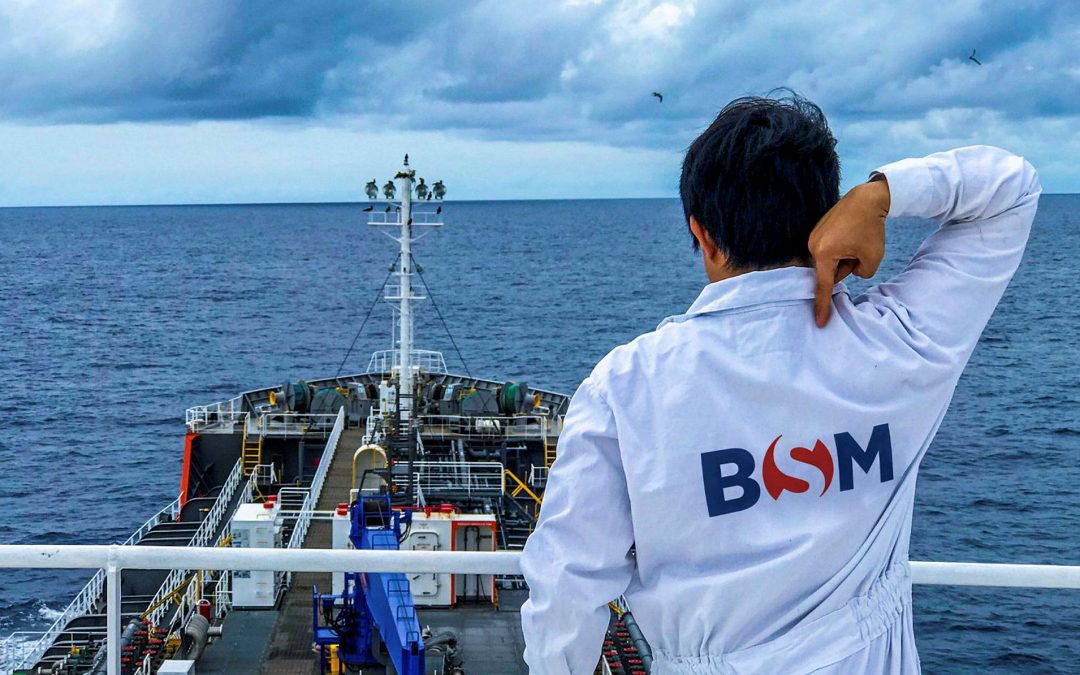Swiss marine power company WinGD has launched a pilot project for a new engine diagnostics solution that is tailored to greatly simplify engine maintenance for crew and fleet managers. The enhancement to WinGD’s engine monitoring and remote support platform, WiDE (WinGD integrated Digital Expert), is being trialled on a vessel managed by Bernhard Schulte Shipmanagement (BSM). The solution is an important step to enable smart, predictive maintenance for two-stroke engines.
The pilot installation will monitor five of the engine components crucial for reliable engine operation (cylinder liners, piston rings, exhaust valves, fuel pumps and fuel injectors), recommending condition-based maintenance intervals by using algorithms to estimate their remaining useful life.
BSM Group Technical Superintendent Theodore Ioannou said: “When we approached WinGD for the project we knew that the move towards predictable maintenance was an important element in our strategy using digital tools to reduce costs, improve safety and maximise availability for our customers. We expect that this trial will point us towards operational improvements that could be rolled out across our managed fleet of WinGD-powered vessels.”
WinGD Operations Director Rudolf Holtbecker said: “After the trial, maintenance interval changes will be automated, taking us from fixed time-based maintenance intervals to true condition-based maintenance. That will mean a dramatic reduction in unplanned maintenance and possible human error around scheduling essential tasks, translating to lower engine lifecycle costs for operators using WiDE.”
The trial vessel is a BSM-managed LNG gas carrier with two five-cylinder WinGD X72DF engines. Propulsion Analytics, the software company that assisted in the development of WiDE, is acting as a partner, with further support and verification provided by classification society Lloyd’s Register. Throughout the project the WiDE remote support team will validate and improve the system in preparation for full release.
Through WiDE’s engine diagnostics system, crew on the vessel will be provided with the possible causes to diagnose faults and prompted to add relevant maintenance tasks. The scheduling of the tasks will be calculated based on the predicted remaining useful life for the components affected.
Propulsion Analytics and WinGD will define faults, improve diagnostics and formulate a scheme for condition-based maintenance recommendations. The accuracy of the diagnostics will be validated through feedback from BSM on maintenance activities and subsequent monitoring and analysis.
Holtbecker added: “Supporting our customers with the proactive tools and knowledge that their crew need to run vessels optimally for as long as possible is becoming more and more important, both to reduce costs and meet emissions targets. This important step in engine diagnostics would not be possible without a bold ship operator like BSM willing to test cutting-edge digital concepts and the continued support of Propulsion Analytics in enhancing WiDE’s capabilities.”
WiDE is now installed on more than 200 vessels. A digital twin of each individual engine builds a comprehensive picture of the expected engine performance in all conditions. Anomalies are analysed to identify root causes, dramatically improving troubleshooting time for engine crews and highlighting optimisation potential across the vessel lifecycle.
All WinGD engines are fitted with the hardware required to activate WiDE. In addition to continuous engine performance data records, insights and automated advisory, subscribers gain access to remote support from WinGD operations experts and the WiDE 24×7 emergency response team.
Source: Hellenic Shipping News






